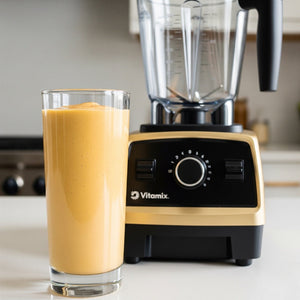After the birth of my third son, I refused to get postnatal depletion. I hated feeling weak, getting sick easily, having broken hair and feeling like I was giving away my vitality while breastfeeding.
This time around, I committed to eating like an athlete because the truth is moms are athletes. Now I feel better than I have in years, stronger even without being cleared to lift (my PT even said he noticed a major difference since my 3rd trimester), better digestion, zero cravings, clear headed even with newborn sleep, energetic and so happy!!
In no way am I in a rush to 'snap back'. I am not at my normal weight - I am breastfeeding and up in the middle of the night. I’m so grateful for the days I get to yoga, but the reality is, most of my “workouts” are pushing a kid (or two) up a big hill in a stroller and riding scooters in the neighborhood after dinner.
But I trust my body and the habits and tools I have used with my clients for years to get me through this postpartum period without feeling run down. I am going to take you through some of my postpartum core habits and nutrition non-negotiables to ensure I am optimizing my health and the health and development of my growing baby.
Postpartum Phase Lasts Longer Than You Think
Postpartum lasts a heck of a lot longer than just 6-8 weeks. Mothers are often "cleared" by their OB/midwife for exercise at 6-8 weeks postpartum. As a result, this has become the unofficial expectation for postpartum recovery, leaving many women confused, angry and so disappointed when they’re not back to feeling themselves at the 6 week mark.
A more realistic time frame for recovering postpartum is closer to 6-18 months. On average, it takes about a year for hormones like progesterone, testosterone and estrogen to normalize. Your nutrient needs are much higher for at least a year after birth due to your body being depleted during pregnancy, and this can be even longer if you’re breastfeeding. Additionally, your pelvic floor and abdominal months can take up to 8+ months to heal. Postpartum hair loss doesn't peak until about 4 months postpartum and can last up to a year. And it can take up to 6-8 months or more for iron levels to rebound.
All that to say - although every mothers postpartum journey looks different, prioritizing nutrition is essential to avoiding exhaustion and depletion.
The Food you Eat Matters in Postpartum (for you and baby)
Most people don’t realize that breastfeeding takes about 30% of your energy stores - that's equivalent to walking seven miles a day. It's a lot of energy!! Told you, moms are athletes!
Breastfeeding mothers can burn an additional 500 calories throughout the day, and without a sufficient amount of fuel, you won't have enough energy to produce an adequate milk supply. That's why it's important to ensure you're eating enough for optimal nutrient status.
We also have to remember that what we're consuming is fueling our little one. We want to look at those 500 calories in the most nutrient-dense way to replenish what we lose and to also support the growth and development of our baby.
Fuel with Protein, Protein and MORE Protein!
I can’t tell you how many clients I start working with that are under eating protein. I think we've normalized many postpartum symptoms, like massive amounts of hair loss and fatigue, but a common denominator is that we are often under-eating and nutrient-depleted.
My Protein Non-Negotiables:
- .8-1 gram per pound of goal body mass a day: Making and eating enough protein is work with newborns and little ones, but it doesn’t leave you cranky, depleted or weak - it fuels you and it makes all the difference. If you're struggling to hit your protein goals or with making meals at home, head over to Instagram to see how I meal prep protein at the start of a busy week so I can still reach my protein intake needs daily. I also have a ton of high-protein recipes you can find on Instagram and on the blog if you need inspiration.
-
Starting the day with 30 grams minimum (hitting 40-50 on average):
The easiest way to set yourself up for success in meeting your protein requirements is starting your day with a high protein breakfast. My clients and I have been using the Fab 4 Smoothie for over a decade to get in 30 grams of protein, along with a whole bunch of other nutrients to support whole body health. It's such a simple and time efficient way to prioritize yourself in the morning, support blood sugar balance, and stay fueled for 4-6 hours. - Red meat daily/every other day or min. multiple times a week: Getting strategic with red meat has been an absolute game changer for me. Red meat is an underrated 'superfood' - it is an excellent source of protein, iron, vitamin B12, zinc, and other important nutrients. Iron, specifically, is a nutrient we want to prioritize during postpartum. One of the number one causes of fatigue in postpartum is iron deficiency, not anemia. Whether you are pregnant or postpartum, pay attention to your iron levels because iron delivers oxygen and nutrients to your entire body. As someone who ended up getting iron infusions after my second pregnancy, increasing my red meat intake this time around has helped me tremendously during the postpartum recovery. I'm sleeping better, have more energy throughout the day, and feel stronger.
Be Well Tip: The one thing I’m focusing on this round is having protein to snack on from the fridge. My afternoon snack looks like homemade meatballs, ground meat, chicken, salmon - you name it. But it’s not a lactation cookie or bar. It’s real nutrient, dense bio-available protein and my body feels the difference. I also love knowing I am passing that goodness directly to Julien.
The Importance of Blood Sugar Balance Postpartum
After you give birth, your body becomes much more sensitive to insulin, and breastfeeding can also change maternal blood sugar patterns throughout the day. Dysregulated blood sugar can exacerbate many symptoms breastfeeding mothers experience, including an increase in sugar cravings and hunger levels. These intense cravings and increased hunger levels can also be a result of being nutrient depleted, and as a result, our bodies begin to crave energy-dense foods.
But rather than resisting cravings and eliminating food groups, focus on what you can add to your plate. Every meal is an opportunity to nourish yourself and your growing baby. I am not restricting carbohydrates, but I am plating the Fab 4 and eating/meeting my protein goals daily. Eating to balance your blood sugar is critical to reducing cravings, increasing satiety levels, stabilizing mood and energy levels, and more. And adequate protein intake is a key player in blood sugar regulation.
Some of my favorite protein sources include:
- Red Meat: Grass-finished bison, beef, or lamb (I like to get a majority of my red meat from Force of Nature delivery or grass-fed/grass-finished from the grocery store)
- Organ Meats: Force of Nature ancestral blends (code Kelly10 saves you 10% on your first order)
- Seafood: Wild-caught fish, shrimp, or salmon
- Poultry: Cage-free chicken, organic turkey breasts, cage-free eggs (I recommend Pasture Bird for pasture-raised chicken and eggs)
- Canned: Sockeye Salmon or Tuna
- Bone Broth: My favorites of FOND and Kettle & Fire
- Supplements: Be Well by Kelly Protein Powder
Increasing protein intake at meal times is an easy way to help stabilize blood sugar levels by blunting the absorption of carbohydrates/sugars into the blood stream. Understanding the science behind how food impacts your blood sugar levels and how crucial blood sugar regulation is to achieve whole body health is one of the most powerful tools we can have throughout the postpartum period.
If you are looking for a complete guide into caring for your body and your baby before, during and after pregnancy, complete with nutritional plans, motivation and health recommendations, check out my Fab 4 Pregnancy Course here.
Supplements I Recommend for Postpartum Recovery
Hard truth, pregnancy takes a toll on a mother's nutrient status. A well-rounded diet is an excellent foundation for health, but because of various factors, like crops grown in depleted soil, breastfeeding, and everyday stress, nutrition alone often isn't enough to provide your body and growing baby with all the nutrients you need.
Here are the supplements I recommend to fill in those nutritional gaps:
- Electrolytes: What’s crazy is that 64% of women in postpartum feel fatigued, and one of the predominant causes is dehydration. I often see postpartum mothers drinking a ton of water, but they often forget to replenish the electrolytes being flushed out of their system. Electrolytes are necessary for many bodily functions, but they have personally had the biggest impact on my breast milk supply throughout postpartum. I use LMNT electrolytes - I'm an investor, full disclosure, but LMNT is the first electrolyte mix I found that with a science-backed formulation to meet the needs of people following a whole-foods diet without the added sugar. Receive a free sample pack with your purchase when you shop my link!
- Prenatal/postnatal vitamin: Generally, it is recommended to continue taking your prenatal six months after giving birth or for as long as you are producing milk and breastfeeding. Studies show that continuing to take a pre or postnatal vitamin with folate, DHA, and Vitamin D is critical for baby's brain development, processing skills and visual acuity. I am currently taking WeNatal prenatal and am an advisor for this company that I wholeheartedly believe in. They have created a prenatal supplement with comprehensive formulas backed by the latest science and research, and include bio-available nutrients that most other prenatal leave out like iron, choline and methylated B vitamins.
- Omega-3s: Healthy postpartum Omega-3 levels are also critical for breast milk nutrient content, maternal mood, brain function, hormone balance, and overall postpartum recovery. Plus, research shows that not only does DHA improve mental focus, reduce inflammation and the risk of postpartum depression, it also provides for better brain and visual development of your baby. Getting enough omega-3s is hard to get through food alone, so supplementation is key. I recommend WeNatal’s Omega DHA+ - it is easy-to-swallow, third-party tested for contaminants including heavy metals, dioxins, and polychlorinated biphenyls (PCBs), and right now you can receive a FREE 30-day supply of WeNatal’s Omega DHA+ fish oil ($34.95 value) with purchase of any prenatal subscription through my link at WeNatal.com!
A Final Piece of Advice...
My biggest piece of advice is not to stress about getting back to your pre-pregnancy weight. Take your time and do what feels right to get back to feeling strong and energized. As moms, we are required to handle so much from day to day, it is a miracle that we even have time to sit down and have one second to ourselves. Of course, our attention changes to caring for a newborn, but it's still important to look after you. And prioritizing nutrition is the simplest form of self-care we can do. Stay consistent and find little ways to show up for yourself on your plate each day because there is nothing like feeling fueled and taking it as seriously as you deserve.
Resources:
- Courses: Fab 4 Pregnancy
- Shop: WeNatal’s Omega DHA+ & WeNatal prenatal
- Guides: 10 Science-Backed Healthy Habits





